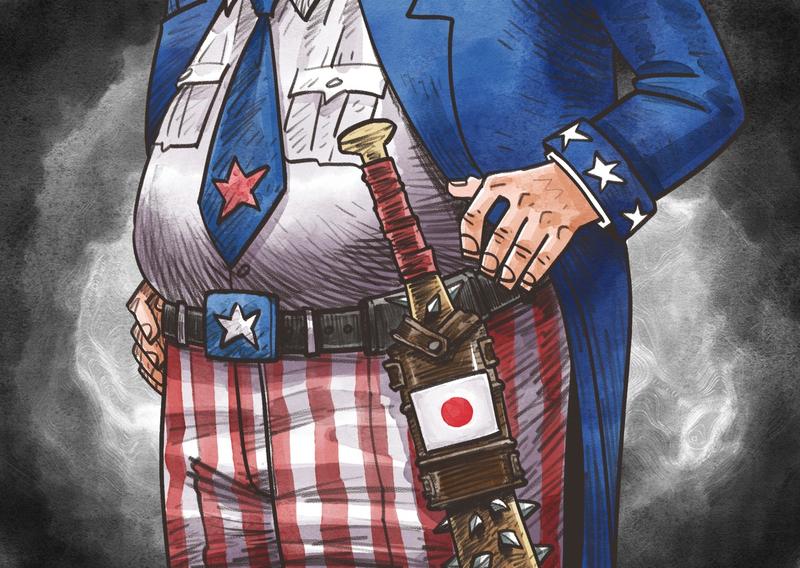 (CAI MENG / CHINA DAILY)
(CAI MENG / CHINA DAILY)
Following the United States' shooting down of a so-called Chinese spy balloon and three other unidentified flying objects, Japan's Ministry of Defense announced on Tuesday that it had conducted a fresh analysis of unidentified aerial objects that had entered Japan's airspace in recent years, and had concluded "they are strongly presumed to be unmanned reconnaissance balloons flown by China".
On Wednesday, the Japanese Ministry of Defense went one step further, saying that it "hopes to re-examine the rules on the use of weapons". Japan's Self-Defense Forces can only use weapons in the case of "legitimate defense and emergency refuge" now.
The move is just opportunism on the part of Tokyo to help advance its militarization agenda. If Japan found surveillance balloons had entered its airspace in the past, then why didn't it say so at the time? And what proof does it have that the balloons belonged to China and were carrying out surveillance?
It is no coincidence that Tokyo has made the claims now, as the Joe Biden administration has made a great song and dance about the four flying objects it shot down in a bid to hype up a threat from China. Although in the face of skeptical scrutiny, it has begun to dial it down.
Commenting on the three small UFOs the air force shot down, White House national security spokesman John Kirby said it was likely the objects were not engaged in "intelligence collection against the United States of any kind — that's the indication now," and they were probably "balloons tied to some commercial or benign purpose".
Even while persisting with the allegation that the first balloon that was shot down was a Chinese "spy balloon", it is now admitting that it appears to have been blown off its initial trajectory and ultimately flew over the continental US, according to an Associated Press report citing a US official. Although it is not yet ready to drop its threat narrative completely, as it claims, its original course would have taken it over Guam.
One Japanese leader after another has claimed that they are striving for Japan to become a "normal state". But it seems that for them that simply means being a vassal state of the US.
As China's Foreign Ministry spokesperson Wang Wenbin said, Japan was following the US' suit in dramatizing the balloon incident and making unfounded allegations to smear and attack China.
Japan is already paying a price for doing the US' bidding. In March last year, Russia announced it was ending talks on a peace treaty with Japan and suspending all bilateral cooperation programs after Tokyo joined the US in sanctioning Russia.
Even if Japan gets rid of the pacifist Constitution that its politicians so dislike one day, that won't make it a "normal state", but will just embroil it deeper in the US' geopolitical game in the Asia-Pacific.


